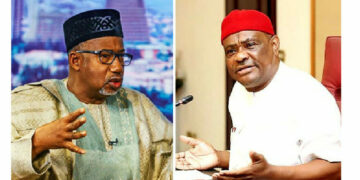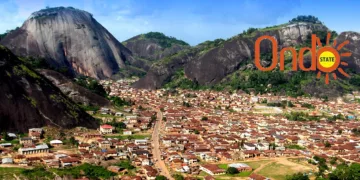Executive director of Baobab for Women Human Rights, Bunmi Dipo-Salami, said the violence against women in politics is rarely reported.
While stressing that the society needs to understand that women are not second-class citizens, she expressed regret that there are still impediments on the paths of women in politics.
The rights group also argued that one of the reasons women are not allowed to be in power is that as leaders they expose the deficiencies of men and men always want to protect themselves.
Dipo-Salami disclosed this in Abuja, at the end of a roundtable strategy meeting on women’s political participation, supported by the Swedish International Development Agency through Equality Now and the Solidarity for African Women’s Rights.
Nigeria has been recording low participation of women in both elective and appointive positions, which raises growing concern for many Nigerians.
However, concerted efforts have been made by the government and non -non-governmental organisations to increase the level of participation of women in politics in line with the declaration made at the fourth World Conference on Women in Beijing, which advocated 30% affirmative action.
In Nigeria, the extant National Gender Policy recommended 35% affirmative action instead and sought a more inclusive representation of women with at least 35% of both elective political and appointive public service positions respectively.
She said “Violence against women in politics is rarely reported, and with that many women in politics that had to leave because of the violence not because they have experienced it but because there are also women who have experienced it.
“We had women beaten, women that are burnt to death, we also have the lack of support by family members and lack of constitutional provision and electoral laws that support women that will lead to women that will contribute to women inclusion in politics. Majorly we have a lack of political will.
“The society needs to know that women are not second-class citizens, however, there are some roadblocks on women’s paths, especially for women who participate in politics.
“One of the reasons women are not allowed to be in power is that as leaders they expose the deficiency of men and men always want to protect themselves, is also about power and access to opportunities.
She lamented “Last year the only 5 gender bills in the National Assembly were thrown out, this means that is not about women not being qualified, is not about women making good leaders, is about seeing power as a zero-sum game by the male politicians that cannot be shared with women because if we do we are not going to be that powerful.”
The director argued that women should realise that in as much as they want the government to provide a level playing field for them or men it’s also important that power will not drop on their laps.
“They have to fight for it, if they have to snatch it, snatch it and run with it, because we are Nigerians we deserve to be at the table,” she concluded.
Speaking earlier, Dr. Dayo Kusa, conflict transformation strategist, gender specialist, and former Director Institute of Conflict Resolution maintained that women shouldn’t continue to lament the problems they have, but going forward continue to talk because the talking has brought everything to the public space.
Kusa pointed out “We know them, patriarchy, lack of money, child-bearing, the nature of their biological make-up, and violence against women in politics are all bottlenecks for women’s political participation which made many women back out.
“We have strategies to protect women, even more than the men, so that they have confidence and they don’t lose their lives while trying to pursue politics.
She said that the 16 days of activism have not been utilised, adding that “the feminisation of politics, poor women status, contribute to men having a very big club, while women are just trailing behind, which are all part of the patriarchal society.”




